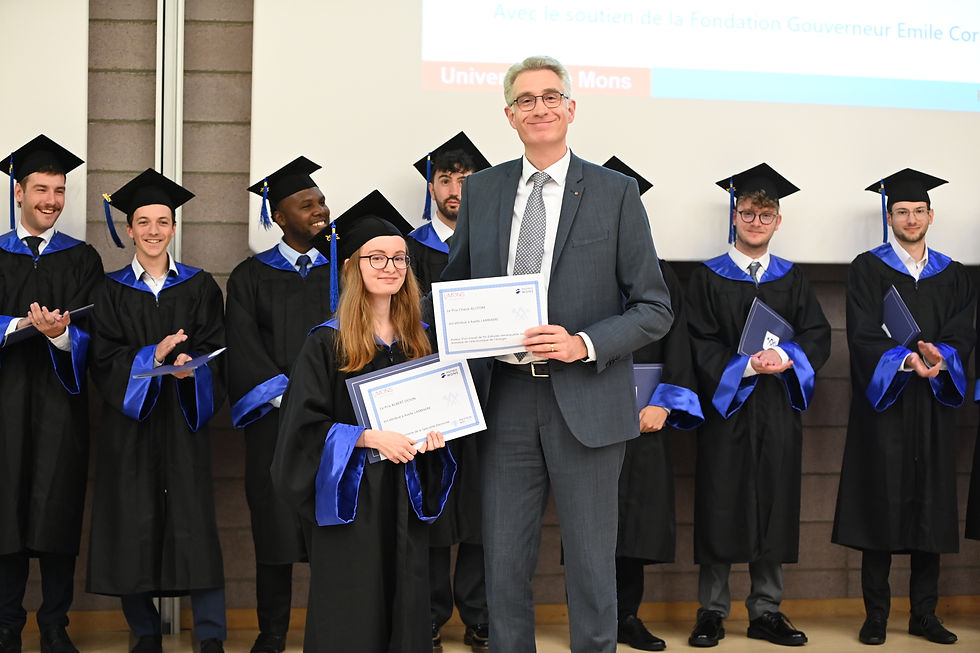PhD thesis public defence, Adriano ARRIGO
- 21 sept. 2022
- 2 min de lecture

Thesis abstract:
In the current energy transition towards decarbonized energy systems, the mission for system operators is to continue maintaining a cost-efficient and reliable supply of energy. However, this is hindered by the increasing uncertainty and variability stemming from weather-dependent renewable energy sources which call system operators to adapt the short-term operational procedures. In that context, the main objective of this thesis is to develop novel data-driven optimization methods for decision-making in energy systems that embed an accurate representation of uncertainties, and non-convex network constraints to improve the cost-efficiency and reliability. A first part of this thesis investigates uncertainty-aware optimal power flow problems where the system operator schedules the available generating units while being aware of uncertainties pertaining to, e.g., renewable power generation. In this direction, traditional stochastic optimization approaches have been extensively studied in the literature and applied to energy systems but they all rely on a unique probability distribution to describe the uncertainty, though a true probability distribution is not accessible in general. To address this issue, Distributionally Robust Optimization (DRO) has gained recognition in handling the potential misrepresentations of uncertainties in energy systems. To do so, DRO considers a family of probability distributions, i.e., the ambiguity set. Hence, the definition of ambiguity set is a prerequisite for the underlying performances of the obtained solution. Following this rationale, in this thesis, we explore additional features of uncertainty, such as physical bounds and dependence structure, to refine the definition of the ambiguity set. On the one hand, physical bounds allow to ensure that the uncertainty only takes realistic values, avoiding unrealistic ones such as, e.g., negative wind power generation. On the other hand, the dependence structure guarantees that the distributions within the ambiguity set follow a dependence structure which is consistent with the empirically observed one. A second part of this thesis focuses on improving the representation of non-convex network constraints within the integrated operation of power and natural gas systems. Regarding electrical transmission, we consider the DC power flow equations that are usually deemed reasonable for high voltage transmission systems. The gas flow dynamics, however, are governed by the so-called Weymouth equation which is highly non-convex and challenging to include within optimization programs. To address this issue, the approaches based on second-order cone relaxation or linear interpolation usually allow to derive a tractable solution but they are not sufficiently tight for practical purpose and still need to address research questions. To bridge this gap, we introduce a new neural-network-constrained optimization framework for improving the modeling of gas flow dynamics within the integrated operation of energy systems. The method consists of capturing the non-convex Weymouth relation between pressures and gas flows via a neural network. Then, the neural network is encoded via a tractable mixed-integer program within the set of constraints. Through the developments and experiments in this thesis, we show that distributionally robust and neural-network-constrained methodologies allow to make informed decisions which improve cost-efficiency and reliability of the underlying operational procedures. Overall, the developed methodologies show promising results which pave the way towards the data-driven operation of energy systems.




